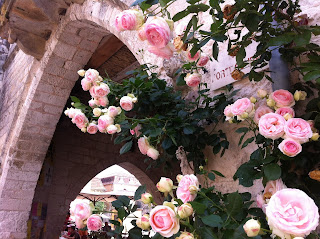In one of them, I came across this picture. It's called The Balcony Room, and it's by a German painter called Adolf Menzel. It was painted in the second half of the 1840s, so before the French paintings with which we are more familiar.
I've always remembered it, though I had no idea till today where I'd first seen it. I'm not sure what it is about it that was so fascinating; perhaps it's that it's empty of people - there's a sense that someone has just left: perhaps that enables you to fill the space from your own imagination. Or maybe it's the light, the simplicity, the spaciousness of the room. Whtever it is, I still find it evocative.
Task
- If you'd like to write a story prompted by the picture, ask questions. Where might it be? Who might it belong to? What is happening in their life? (Remember for a story, you probably need this to be a moment when things are changing for the main character - a moment of significance.)
- Or, choose a different room - one you've known. If it's a room you once knew well, you could draw a quick sketch of it, and brainstorm the memories you associate with it - of people, of things that happened there. Then go in whichever direction you choose - you could write about your memories of the room, or about why it's significant to you. You may wish to start with a description of it.
- Then again, you could write about a room you've seen, but which isn't part of your personal history. You could write about it, and why it interests you; or you could set a story in it.







